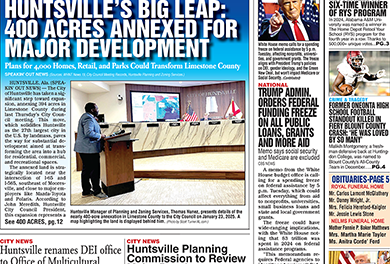
Photo: milkos via 123RF
From appraisal to zoning, the real estate world is full of jargon and terminology that can be intimidating, especially for first-time buyers or sellers. While this list does not include every real estate term, it is a comprehensive glossary that provides straightforward definitions that everyone buying or selling should know.
An Appraisal is an assessment of a property’s value often required by lenders before approving a mortgage loan. Appraisers use various factors, including location, size, condition, and recent sales of comparable properties, to determine the fair market value.
Buyer’s Agent is a real estate agent who represents the buyer’s interests in a real estate transaction. They help buyers find suitable properties, negotiate offers, and guide them through the purchasing process. The property seller typically pays the buyer’s agent as part of the overall real estate transaction.
Capital Gain is the profit from the sale of a property or investment and may have tax implications. Sellers need to report gains to be compliant and understand whether they qualify for primary residence exclusions.
Closing is the real estate transaction’s final step, when all necessary documents are signed and the property’s ownership transfers from the seller to the buyer. This process also involves the exchange of funds, including the down payment and closing costs.
Closing Costs are the fees and expenses associated with purchasing a property, including appraisals, inspections, title searches, and loan origination fees.
Comparative Market Analysis (CMA) is a report that real estate agents provide to clients, comparing a property’s value to similar properties in the area. This information helps buyers and sellers determine an appropriate asking or offer price.
Contingency is a condition required for a real estate contract to become binding. Common contingencies include financing, home inspections, and the sale of the buyer’s current property.
A Down Payment is a lump sum of money a buyer pays upfront when purchasing a property. It is usually a percentage of the property’s purchase price not covered by the mortgage loan. In general, the higher the down payment, the lower the monthly mortgage payment is.
Escrow is a financial arrangement where a third party holds and manages funds and essential documents related to a real estate transaction. The escrow agent ensures that all conditions of the sale are met before releasing the funds and documents to the appropriate parties.
Photo: lacheev via 123RF
A Home Inspection is a thorough examination of a property’s condition conducted by a licensed inspector. Buyers often request inspections to identify potential issues or repairs before closing the deal.
A Homeowners Association (HOA) is an organization that manages and enforces rules and regulations for a specific community or development. Homeowners typically pay dues to cover maintenance and amenities. Real estate agents can navigate the complexities associated with HOAs with buyers, review relevant documents, and ensure they make informed decisions.
Interest is the cost of borrowing money from a lender, typically expressed as a percentage of the principal amount borrowed. Interest rates can be fixed (remaining constant over the loan term) or variable (changing over time based on market conditions or specific terms).
A Listing Agent is a real estate agent who represents the seller in a real estate transaction. They help sellers market their property, set an appropriate asking price, and negotiate offers on their behalf. The listing agreement outlines the terms and conditions of the property sale, including the commission the listing and buyer’s agent will earn upon the successful sale of the property.
Multiple Listing Service (MLS) is a database real estate professionals use to list and share information about available properties. Buyer’s agents use it to find properties that match their client’s criteria.
Mortgage is a loan that a borrower uses to purchase a property. The property serves as collateral for the loan. Mortgages come in various types, including fixed-rate and adjustable-rate mortgages, each with its own terms and interest rates.
Principal is the original amount borrowed in a mortgage loan. A portion of each mortgage payment goes toward reducing the loan balance or principal.
Realtor is a real estate agent who is a member of the National Association of Realtors (NAR). Realtors adhere to a strict code of ethics and professional standards.
Title refers to legal ownership of a property. It is the method of legally transferring ownership to the buyer.
Zoning refers to local government regulations that dictate land and property usage in specific areas, such as what structures (residential, commercial, or industrial) can be built in a particular zone.
Navigating the world of real estate can be daunting, but having a firm grasp of these essential terms will empower you to make informed decisions and protect your interests. Keep this comprehensive glossary handy as a reference guide to demystify the complexities of real estate transactions.
The post Empower Your Home-Buying or Selling Journey with This Key Terms Glossary appeared first on AFRO American Newspapers .











